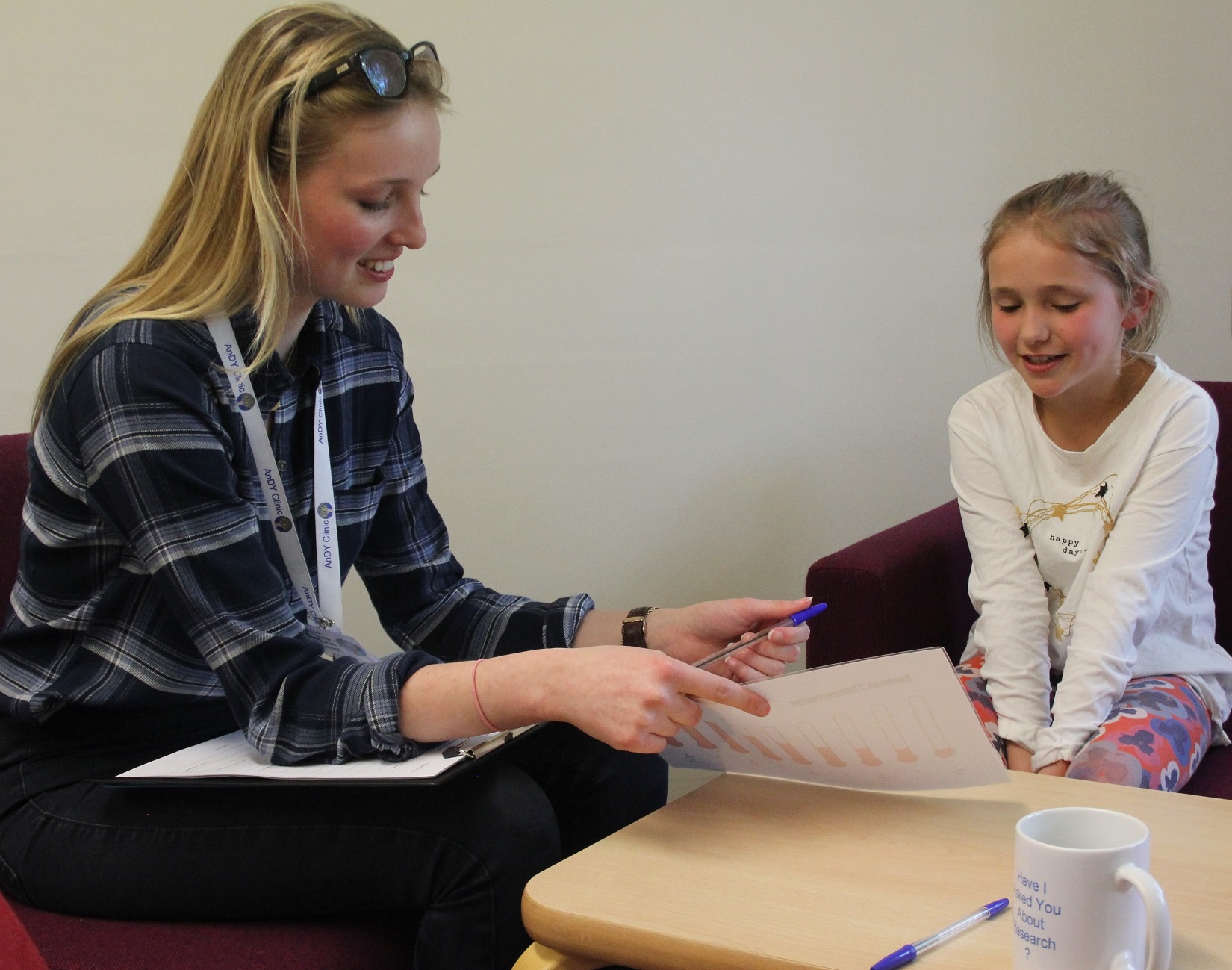Helping more children and adolescents access effective treatment for anxiety
Up to one fifth of children and adolescents are affected by anxiety disorders, putting them at risk for serious mental health difficulties later in life. Unfortunately, many young people don’t seek help and those who do are often faced with long waiting times before they can receive treatment. However, new interventions are changing this.
Making treatment for anxiety more accessible
A research team at the University of Reading has developed a novel treatment that has not only proven effective for more than 70 per cent of patients, it has made treatment more accessible to those who need it.
For almost twenty years, the ‘gold standard’ treatment for childhood anxiety disorders has been three to four months of weekly cognitive-behavioural therapy delivered by specialists. Though effective, this high-intensity one-to-one intervention means only a small proportion of those in need can access treatment.
In response to the need for a more accessible, but still effective, first-line treatment for children with anxiety disorders, the Reading team developed and evaluated a brief and relatively simple parent-led treatment that can be delivered by non-specialists. This has doubled the number of children whose treatment can be managed by each clinician.
Discoveries and treatment
The team conducted two phases of research, the first clarified parental factors associated with the development and maintenance of childhood anxiety disorders. They made several important discoveries, including that the children of mothers with Social Anxiety Disorder are at increased risk of developing an anxiety disorder themselves by the time they reach school age. But they also found that particular parental behaviours could lessen this risk.
These discoveries informed the development of a treatment programme, which guides parents in applying cognitive-behavioural principles to their children’s day-to-day life, emphasising parenting behaviours that help children to overcome their fears.
The second phase of research evaluated this new programme. Treatment was delivered through mental health workers in two Child and Adolescent Mental Health Services (CAMHS). Following treatment, independent assessors determined that 76% of the children and young people who had received the treatment were ‘much’ or ‘very much’ improved. Patient outcomes were also unrelated to the mental health workers’ qualifications, confirming that this new approach could be used effectively by non-specialists as a first-line intervention in primary care.
Expanding delivery across the UK, and beyond
Further studies by the team helped to demonstrate the efficacy and cost-effectiveness of the treatment, which enabled them to expand its delivery. The treatment is now the standard first-line treatment for children with anxiety orders across many NHS Trusts. The team is now extending their reach beyond the UK and has developed a research-based treatment programme for adolescents as well.
They are also pursuing a number of routes to make their programme for pre-adolescent children more accessible to the public; they are working with RedNinja, a UK-based design-led technology company, with support from the Oxford Academic Health Science Network to develop an online treatment of the pre-adolescent programme that can be delivered both in health settings and through schools.
“We are collaborating with international colleagues in the development of this treatment to promote its reach internationally,” said Cathy Creswell, Professor of Developmental Clinical Psychology. “We have already had interest from colleagues in Iceland and China who are keen to translate and adopt this approach.”
Strengthening partnerships to provide the best patient experience possible
In 2016, the research team opened the AnDY Research Clinic based in the School of Psychology and Clinical Language Sciences at the University of Reading. The Clinic works closely with the Berkshire Healthcare NHS Foundation Trust, which has located its CAMHS anxiety and depression pathway onto the University of Reading Campus. It will be moving the rest of the CAMHS services over in order to further strengthen this partnership between research and treatment delivery across Berkshire, providing the best patient experience possible.
One parent who attended a five-week Overcoming Anxiety course run by the AnDY clinic said, “It was a relief to be in the company of others who understood what we were going through. Thanks to the course, our daughter has made significant progress in overcoming her anxieties.”
Fast Facts
- From 1999 to 2004, Professors Lynne Murray, Peter Cooper and Cathy Creswell from the School of Psychology & Clinical Language Sciences, studied mothers with anxiety disorders and their children from birth until after they started school
- The team’s evidence-based treatment for childhood anxiety disorders can be delivered effectively in about five hours by non-specialists, compared with individual cognitive-behavioural therapy, which usually involves 16 one-hour sessions with a specialist over four months
- Children who receive full guided parent-delivered treatment were twice as likely to recover from their primary anxiety disorder compared with children in a control (no treatment) group. This is a comparable recovery rate to those reported for intensive individual cognitive-behavioural therapy
- In terms of cost effectiveness, the brief guided parent-delivered treatment is approximately 23% cheaper when compared with another brief psychological treatment for anxiety that is carried out over a similar time frame
Further information
- Support for this research has been received from the National Institute for Health Research, the Economic and Social Research Council and the Medical Research Council
- Read a recent paper from this research: Clinical outcomes and cost-effectiveness of brief guided parent-delivered cognitive behavioural therapy and solution-focused brief therapy for treatment of childhood anxiety disorders: a randomised controlled trial’, published in The Lancet Psychiatry in 2017
- Visit Professor Creswell’s staff page
- Visit Lynne Murray’s staff page
- Visit Peter Cooper’s staff page
- Visit the School of Psychology & Clinical Language Sciences website
- Visit RedNinja’s website, a UK-based design-led technology company
- Visit the Oxford Academic Health Science Network website
- In 2010, Professor Cathy Creswell was awarded the British Psychological Society May Davidson Award for outstanding contribution to clinical psychology within 10 years of qualification.
- The three researchers have each advised various influential bodies, translating their research findings into policy and professional practice. For example, Professor Creswell was a specialist member of the NICE Quality Standards Advisory Committee for Anxiety Disorders and on the advisory panel for the National Commissioning Centre for Mental Health review of e-therapies for children and young people with mental health difficulties. She is also a member of the children’s and young people’s research working group for the Department of Health’s 10-year strategy for mental health.
- The team has authored numerous books for parents and clinicians, including Overcoming Your Child’s Fears and Worries: A Self-help Guide Using Cognitive Behavioral Techniques (Constable & Robinson, 2007 (new edition to be released in 2018)) and Parent-Led CBT for Child Anxiety: Helping Parents Help Their Kids (The Guilford Press, 2017)
- The AnDY Research Clinic is a University-run research clinic, where young people aged 7 to 17 are assessed and treated for anxiety and depressive disorders, and where research into the development, maintenance and treatment of such disorders is carried out. For more information about the clinic or to access resources for young people, parents, and schools and professionals.


